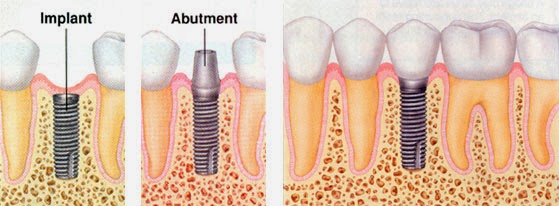Tuesday, February 25, 2014
Importance of flossing
Flossing is an effective tool to prevent various gum problems including pain, irritation and discomfort. Gum diseases occur when the bacteria multiply through colonization at the area of food lodgment at or below the gum line. This can eventually result in pain, swelling, bad breath, soft or tender gums, bleeding and inflammation at the affected area of the gums. Flossing removes mildly formed calculi including food particles and finally prevents swelling and inflammation of gums. Moreover, it stops further progression of infection thus preventing the jaw or lymph node swelling, especially in the neck. According to a recent research study, it has been proven that regular flossing helps to reduce the risk of developing heart disease.
Special offer
If you have been looking for a dentist then look no further . We are offering a new patient special of $99 dollars. This special consists of a Complete Exam, X-Rays & a Dental Cleaning. Please contact us at (310) 322-1814 to take advantage of this offer or to inquire about our other sevices we offer.
Friday, February 21, 2014
Dental implants
What Are the Advantages of Dental Implants?
There are many dvantages to dental implants, including:
- Improved appearance. Dental implants look and feel like your own teeth. And because they are designed to fuse with bone, they become permanent.
- Improved speech. With poor-fitting dentures, the teeth can slip within the mouth causing you to mumble or slur your words. Dental implants allow you to speak without the worry that teeth might slip.
- Improved comfort. Because they become part of you, implants eliminate the discomfort of removable dentures.
- Easier eating. Sliding dentures can make chewing difficult. Dental implants function like your own teeth, allowing you to eat your favorite foods with confidence and without pain.
- Improved self-esteem. Dental implants can give you back your smile and help you feel better about yourself.
- Improved oral health. Dental implants don't require reducing other teeth, as a tooth-supported bridge does. Because nearby teeth are not altered to support the implant, more of your own teeth are left intact, improving long-term oral health. Individual implants also allow easier access between teeth, improving oral hygiene.
- Durability. Implants are very durable and will last many years. With good care, many implants last a lifetime.
- Convenience. Removable dentures are just that; removable. Dental implants eliminate the embarrassing inconvenience of removing dentures, as well as the need for messy adhesives to keep them in place.
Tuesday, February 18, 2014
Each person’s set of teeth is unique much like their fingerprints. Even identical twins do not have exactly the same set of teeth. Did you know that your tongue print is also unique?
- The average woman smiles about 62 times a day! A man? Only 8! Kids laugh around 400 times a day. Grown-ups just 15 :-(
- Academy of General dentistry, the average person only brushes for 45 to 70 seconds a day, the recommended amount of time is 2-3 minutes.
- If you're right handed, you will chew your food on your right side. If you're left handed, you will tend to chew your food on your left side.
- People who drink 3 or more sugary sodas daily have 62% more dental decay.
- Research says that people with periodontal disease (Gum disease) are at higher risk for developing heart disease, stroke, uncontrolled diabetes, pre-term births and respiratory disease.
- People with gum disease are twice as likely to suffer from coronary artery disease as those without disease.
Friday, February 7, 2014
Bonding teeth
If you have a cracked or chipped tooth or teeth, you may be a candidate for dental bonding. Dental bonding involves the application of a tooth-colored plastic adhesive that your dentist will shape and polish to match the surrounding teeth. Dental bonding is relatively painless and is usually performed without anesthesia. If you’re having tooth bonding done on several teeth, you may need to schedule more than one visit; a dental bonding procedure on one tooth takes anywhere from 30 minutes to an hour.
When you undergo dental bonding, the dentist first roughens the surface of the tooth or teeth that will be treated, and then he or she applies a conditioning solution to help the bonding material stick to the tooth. Then the bonding material is applied to the teeth and shaped to fit and an ultraviolet light or laser is used to harden it into place.
Subscribe to:
Comments (Atom)




